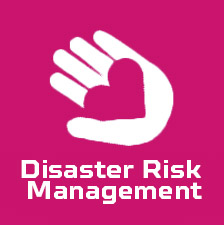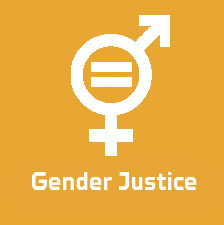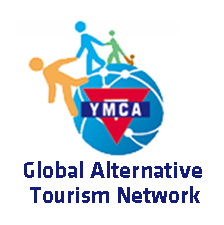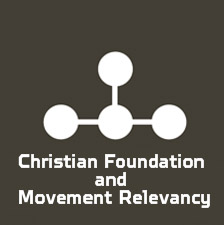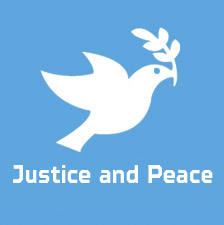Manila Downtown YMCA : Virtual Summer Camp
Last Updated (Monday, 31 May 2021 13:24)
As the hot air balloon soared through the sky and reached its final destination, this year’s 14th Youth Club Summer Camp (YCSC) has finally come to a close. From May 15 to 22, 2021, the Manila Downtown YMCA held its annual summer camp virtually with over 58 participants from various schools to develop leaders of today's youth.
After weeks of planning and test runs, the 14th YCSC was successfully conducted through different platforms such as Zoom, Facebook, and Discord; prioritizing safety amidst the global pandemic. Prior to the camp itself, participants were given different tasks and assigned to groups which became their respective teams all throughout the camp activities.
On May 15 the camp commenced with a worship led by the camp director, Ms. Vanessa Tangcueco, from where she asked the participants to discuss a passage related to servant leadership. Then an icebreaker was done preceding the start of the exciting sessions.
Traditionally, YCSC start with sessions relating to the self and others. For this year's camp, Ms. Vanessa Tangcueco, Ms. Hiyesmin Lao Ong-Tan, Mr. Hero Go, and Ms. Veronica Tangcueco were invited to give talks on the following topics respectively: the Johari’s Window, purposeful leadership, the role of the youth, and teamwork, trust, and communication. Throughout the sessions, several activities were done to allow participants to be engaged with the topic. The strategy appeared to be effective as multiple participants have also shared their insights regarding the lessons. The day ended with an online amazing race that challenged the participants to put the day’s learnings to use. During the night, participants were given the opportunity to mingle with each other through different online platforms.
ICF staff and ICF alumni in the Philippines attended Youth Peace Summit
Last Updated (Friday, 28 May 2021 13:28)
ICF Staffs and some ICF alumni in the Philippines attended the 1st National Ecumenical Youth Gathering for Peace with the theme: "The Peace We Want: Life and Dignity for All". The Philippine Ecumenical Peace Platform (PEPP) organized the summit on May 22-23, 2021 thru zoom. More than a hundred participants from different faiths attended the said activity.
The summit aimed to gather young people to mainstream the call and work for a just peace and the resumption of the peace talks. It also sought to listen to the youth’s perspectives and insights on the national issues that are specifically relevant to peace and conflict transformation. Another objective was to put human dignity in the center of the discourse for a just peace. Lastly, it challenged the youth to respond pro-actively to the call of the times through a sustained though loose network formation of young peace advocates geared towards sustained peace initiatives.
Pastor Carlton James Palm was the keynote speaker. He explained the reasons for the need to pursue the peace talks. After his presentation, a conversation followed on the effects of the COVID-19 pandemic with Kabataan Party List Congresswoman Sarah Elago and Dr. Joshua San Pedro of the Council for Health and Development. Professor Francis Alvarez Gealogo, a historian from Ateneo de Manila University discussed the history of peace talks and the role of churches in the peace process.
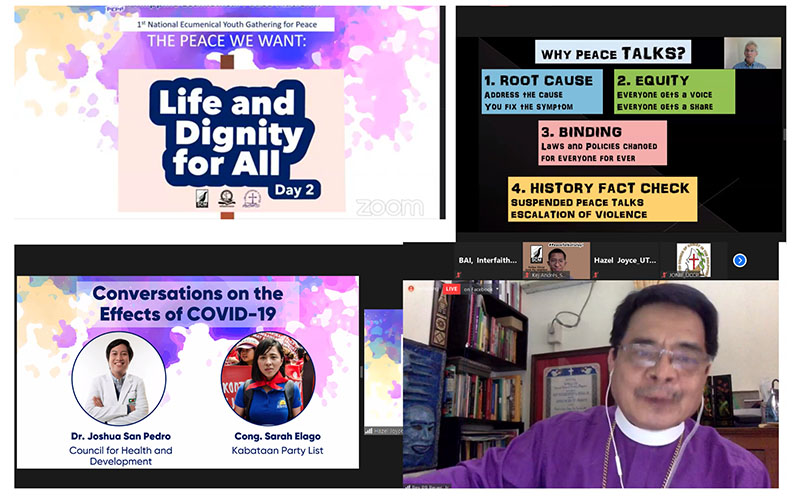
Read more: ICF staff and ICF alumni in the Philippines attended Youth Peace Summit
ICF Program Committee held its Third Meeting on May 21st
Last Updated (Friday, 28 May 2021 13:24)
On May 21st the ICF Committee members met virtually for the third time this year. In attendance were the following members and alternates: Biplob Rangsa from Bangladesh, Cicilia Jambuani from Indonesia, and Mohammad Ayatullah Rahaman from Nepal. Dunhill Angelo Maraya and Dory Dotusme attended as alternate members from the Philippines. Also, present were the ICF Staff as well as APAY’s Executive Secretary Sunita Suna.
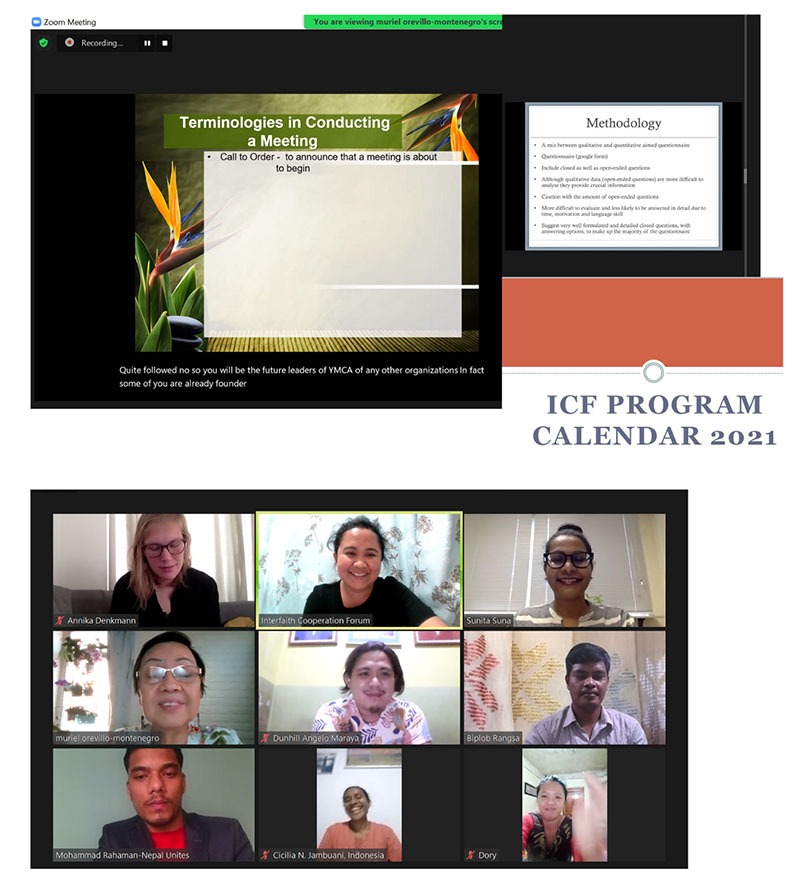
Read more: ICF Program Committee held its Third Meeting on May 21st
Appeal letter from Sri Lanka
Last Updated (Tuesday, 30 November 1999 08:00)
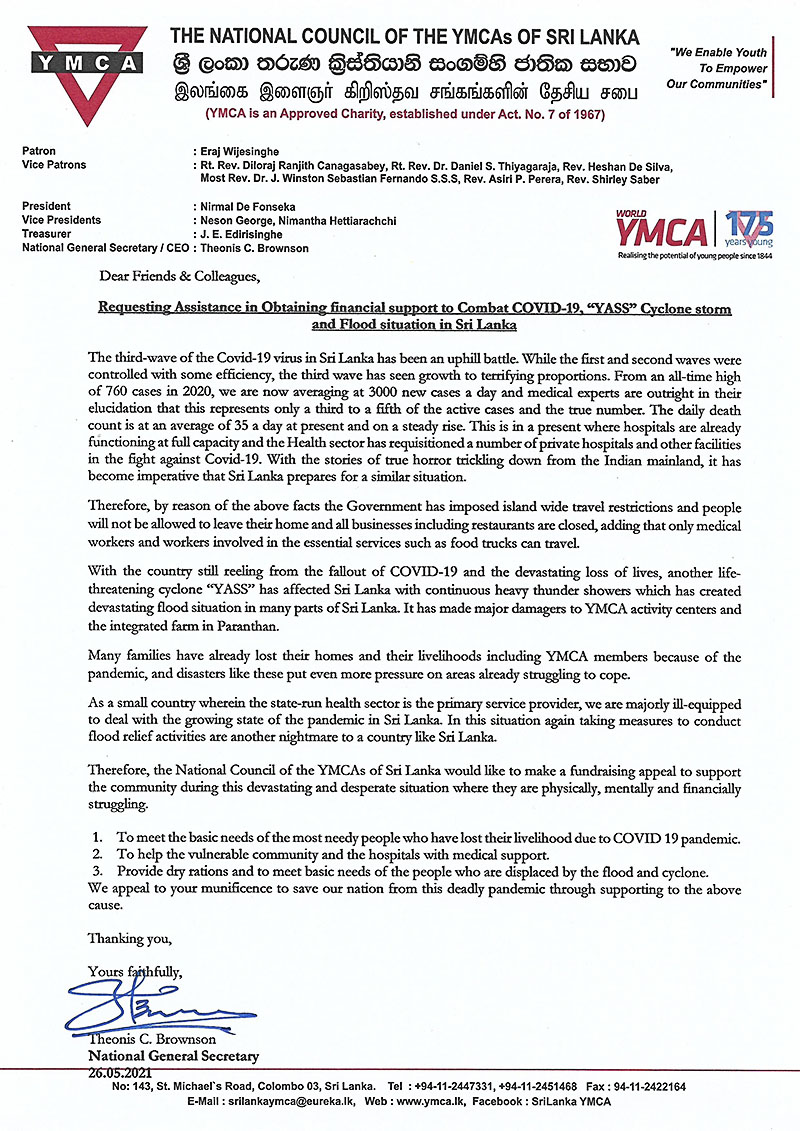
Manifesto for Life and Dialogue
Last Updated (Tuesday, 30 November 1999 08:00)
YMCA Colombia
The Young Men's Christian Association of Colombia, a movement of volunteer and global character, promoter of life, peace and solidarity, educator of individuals who live and feel citizenship, concerned about the future of our country; rejects all acts of abuse, mistreatment, and excess of force on the part of those who hold power and those who incite all acts of violence. We publicly express our support for the youth who have taken the streets to protest against injustice, by restating that:
Participation, as a constitutional principle, a fundamental right, a civic duty, and a fundamental aspect is the basis for the construction of citizenship, all of it committed to the development of an entire country.
Young people have been the promoters of great changes in the country through their artistic and cultural manifestations, which have changed the social dynamics of Colombia.
- The mobilizations that are currently being called by civil society in the midst of the pandemic are a reflection of generalized nonconformity, a product of social inequality.
- The social and economic crisis in which Colombia is going through has led citizens, mostly young people, to express their disagreement by taking action, and the duty of the state is to accompany said processes of social mobilization and guarantee its development.
- These protests are the response to their unfulfilled needs, youth unemployment, and lack of opportunities that have called for the development of peaceful manifests promoted in their territories.
- The acts of violence perpetrated by the different actors only lead to more violence, violence that for more than 50 years has traced a history of sadness and hatred in Colombian families.
Read more...
Page 20 of 40




